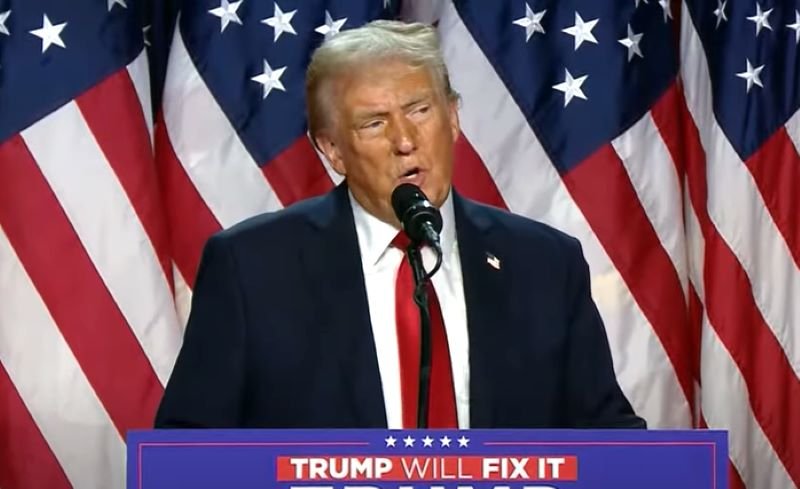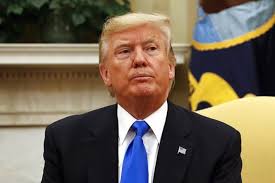From Business Tycoon to U.S. President: The Journey of Donald Trump
Donald Trump, once a prominent businessman and television personality, made an unexpected and historical shift into politics when he became the 45th President of the United States. His transition from a real estate mogul to the leader of one of the world’s most powerful nations marks a significant milestone in both American politics and global governance. Trump’s victory in the 2016 U.S. presidential election shocked the political establishment, with his unorthodox approach to campaigning and governance.
The Rise of Donald Trump: A Business Tycoon with Political Ambitions
Before entering politics, Donald Trump was well-known for his successful career in real estate, television, and branding. As the head of the Trump Organization, he built a vast business empire that spanned hotels, casinos, golf courses, and luxury properties. Trump also gained widespread recognition as the host of the reality TV show “The Apprentice.” Despite controversies and bankruptcies, his name remained synonymous with wealth and success.
In 2015, Trump announced his candidacy for president, quickly gaining attention for his outspoken rhetoric and promises to “Make America Great Again.” His campaign, largely built on populist themes, promised to bring a new approach to Washington politics. Trump’s anti-establishment stance resonated with many working-class Americans who felt left behind by traditional politicians.
The 2016 Election and Trump’s Surprising Victory
Trump’s path to the White House was not conventional. He faced criticism for his inflammatory rhetoric, unconventional policies, and lack of political experience. Despite these challenges, he secured the Republican nomination and went on to defeat former Secretary of State Hillary Clinton in one of the most contentious elections in U.S. history. His victory was largely attributed to his appeal to disenfranchised voters in key battleground states, who were drawn to his promises of economic growth, border security, and job creation.
Trump’s Presidency: Policies and Controversies
Once in office, Trump implemented policies that had a profound impact on the United States and the world. He passed tax reforms, withdrew the U.S. from the Paris Climate Agreement, and pursued a “America First” agenda that focused on reducing international trade agreements and strengthening the country’s military. However, his presidency was also marked by controversies, including his handling of the COVID-19 pandemic, his impeachment by the House of Representatives, and his polarizing leadership style.

Why This News is Important:
Political Disruption and the Rise of Populism
The election of Donald Trump to the presidency marked a turning point in American politics. His candidacy and subsequent victory were seen as a disruption of the traditional political establishment. Trump’s untraditional background and populist rhetoric resonated with many voters, particularly those who felt disconnected from mainstream politics. This shift reflects broader global trends of rising populism, where leaders outside the political elite are gaining support by presenting themselves as champions of the people.
Impact on U.S. Domestic Policies
Trump’s presidency led to significant changes in U.S. domestic policies. His “America First” agenda, which focused on deregulation, tax cuts, and limiting immigration, had a lasting impact on the nation’s economy and social fabric. The policy changes shaped debates on healthcare, climate change, and labor rights. For students, understanding Trump’s policies is critical for grasping modern political ideologies and their real-world implications.
Global Implications and International Relations
Trump’s approach to foreign policy was also unorthodox. His decision to withdraw from international agreements such as the Paris Climate Accord and his stance on global trade agreements like NAFTA reshaped global politics. The “America First” approach raised questions about the role of the U.S. in global leadership and sparked debates on globalization and national sovereignty.
Historical Context: Background Information on Donald Trump’s Journey
Donald Trump’s entry into the political arena is significant when placed against the backdrop of American history. Throughout the 20th century, U.S. presidential candidates typically came from political backgrounds, often with years of experience in government or public service. Trump’s rise to power was a break from this tradition, symbolizing a shift toward anti-establishment and populist sentiments.
Before Trump, the U.S. had seen limited involvement of business tycoons in politics. His victory reflected a broader global trend of populism and anti-establishment rhetoric gaining ground. Additionally, Trump’s tenure marked a significant moment in U.S.-China relations, the climate change debate, and the reshaping of global alliances.
Key Takeaways from “From Business Tycoon to U.S. President”
| Serial Number | Key Takeaway |
|---|---|
| 1 | Donald Trump transitioned from a real estate mogul to the 45th President of the United States in 2016. |
| 2 | Trump’s presidential campaign was based on populist themes, resonating with voters who felt alienated by traditional politics. |
| 3 | Trump’s victory in the 2016 election disrupted the U.S. political establishment and reshaped the Republican Party. |
| 4 | His presidency introduced significant policy changes, including tax reforms and a more isolationist foreign policy. |
| 5 | Trump’s rise and presidency marked a larger trend of populism and anti-establishment movements in global politics. |
Important FAQs for Students from this News
Who is Donald Trump and what is his significance in U.S. history?
Donald Trump is a businessman who became the 45th President of the United States. His rise to power was significant as he broke from traditional political norms, running on a populist agenda and defeating Hillary Clinton in the 2016 election.
What was the key reason behind Trump’s political success in 2016?
Trump’s success in 2016 was largely due to his appeal to working-class voters, his anti-establishment rhetoric, and promises of economic growth, job creation, and stronger borders, all resonating with many disillusioned Americans.
What are some of Donald Trump’s key policies as President?
Key policies under Trump’s presidency included tax cuts, deregulation, withdrawing the U.S. from the Paris Climate Accord, focusing on “America First” economic policies, and enforcing stricter immigration laws.
How did Donald Trump’s background as a businessman influence his presidency?
Trump’s background in business influenced his focus on economic growth, deregulation, and prioritizing trade policies that aimed to protect American industries. His non-political experience also led to a more direct and unorthodox approach to leadership.
Why is Donald Trump’s rise to the presidency considered historically significant?
His rise to power is historically significant because he was the first U.S. president with no prior political or military experience, challenging traditional norms and inspiring a wave of populism in U.S. and global politics.
Some Important Current Affairs Links


















